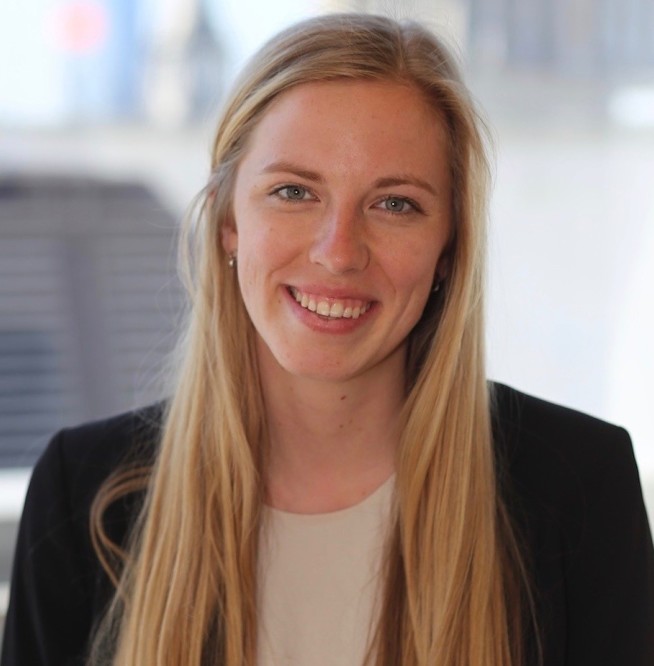
Alma Fredriksson (Mathematics 2019) is a Product Manager in the Innovation team at two Boston hospitals, focussing on the development of AI techniques and tools to improve patient care. During her time at the College, Alma was Co-President of the Women in Maths initiative, which aims to support women who work or study within mathematics, President of Imperial's Scandinavian Society, and a member of the Imperial College Boat Club.
We spoke to Alma to find out more about her experience studying at Imperial, from initial struggles during her first year to discovering her passion for statistics and public health, and her successful, Queen's Tower-inspired attempt for a Guinness World Record!
What did you learn during your time at Imperial, in class or out?
Besides plenty of math and statistical theory (obviously!), I learned how to master rigorous logical reasoning and how to truly push myself, which are two skills I have valued a lot since I left Imperial.
Can you tell us about your studies at Imperial?
My first year was a mixture of the excitement of getting to know university life and the challenge of coming from a different school system. I moved to London from Sweden and loved getting to know both the city and my coursemates. Simultaneously, I quickly found that I had covered less material going into the course than most other people, which meant that I had to work twice as hard during the first two semesters. In my second and third year, I decided to specialise in statistics and data science, since there were plenty of applications in public health, medicine and finance that I was very excited about (and still am!).
Who did you find inspiring at Imperial and why?
I have always looked up to Professor Emma McCoy, who taught my first statistics course at Imperial. She was an incredible lecturer - intelligent, funny and clear - as well as a great mentor.
What is your fondest memory of your time here?
At the end of my first year, two friends and I stumbled across a huge group of people below the Queen's Tower one day and were quickly convinced to join an attempt to create the world's most international group hug. After thorough counting and plenty of hugging, we ended up with 58 nationalities, which was a Guinness World Record at the time.
What is your favourite place at Imperial and why?
Queen's Lawn! I loved going there for lunch whenever the Farmers' Market was on and it's also where we used to watch fireworks during summer ball, which was always one of my favourite nights of the year.
Tell us a bit about the work you're doing now.
I work as a Product Manager in the Innovation team at Boston's two main hospitals, where I oversee the development of new AI techniques and tools that can be used to improve patient care.
We develop deep learning models trained on vast amounts of clinical data to tackle everyday challenges at hospitals and improve the workflow for clinicians. Our projects cover a range of topics, such as boosting the accuracy and speed of abnormality detection, improving hospital operations and finding new innovative ways to reconstruct MRI and CT images.
How has what you learnt at Imperial helped you in your career so far?
I use the course content related to statistical modelling, machine learning and data science on a daily basis to understand and solve healthcare problems using AI.
What have been your career highlights and lowlights?
After graduating from Imperial, I pursued a Master's degree in Biostatistics at Harvard School of Public Health and for the first time, at the intersection of statistics and public health, I felt that I had really found my niche, which was a definite career highlight. On the contrary, completing the second half of my degree remotely during a pandemic was a real challenge and far from what I had dreamt of.
What would be your advice for current students?
Like most new Imperial maths students, I was initially too proud to ask for help when I needed it, which cost me a lot of time. Don't be afraid to admit when you can't follow the explanations in lectures or tutorials – there are almost certainly other people who feel the same and if not, they get a chance to become more confident with the material by explaining things to you.
What makes you proud to be an Imperial alumnus?
I am proud to know the people I met at Imperial, both faculty staff and students, and of the effort my coursemates and I put into our degrees.
What one word or phrase would you use to describe Imperial alumni?
Diverse.
Is there anything else you'd like to share?
If you are a current or prospective student interested in learning more about pursuing a Master's degree in the US or working in the healthcare AI space, please feel free to reach out to me on LinkedIn.
Alma shares her favourite Imperial memory
"At the end of my first year, two friends and I stumbled across a huge group of people below the Queen's Tower one day and were quickly convinced to join an attempt to create the world's most international group hug. After thorough counting and plenty of hugging, we ended up with 58 nationalities, which was a Guinness World Record at the time."